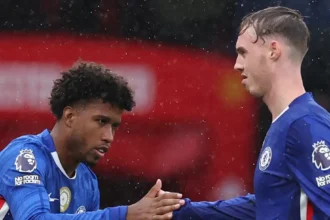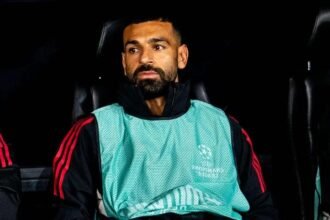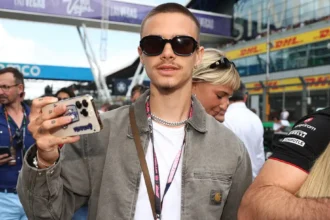Real Madrid have seen plenty of big nights on the global stage, but few will sting quite like this. For the first time in their decorated Club World Cup history, Los Blancos suffered defeat—and it wasn’t close. A vibrant, tactically superior Paris Saint-Germain side steamrolled their way to a 4-0 victory, leaving Xabi Alonso’s men chasing shadows from the sixth minute onward.
What unfolded in this semi-final in Riyadh wasn’t just a defeat—it was a schooling. From the opening whistle, PSG played at a tempo Real simply couldn’t match. Luis Enrique’s decision to start both Ousmane Dembélé and Kylian Mbappé for the first time in the competition immediately paid dividends. Their presence stretched the Madrid backline, but it was the midfield trio that took complete command.
Within six minutes, Fabian Ruiz opened the scoring, finishing a silky move that began with Hakimi and sliced through Madrid’s passive midfield. Barely three minutes later, Dembélé doubled the lead with a rifled shot that left Andriy Lunin flat-footed. By that point, Real Madrid had seen just 34.9% of the ball and barely strung three passes together.
Ruiz’s second goal—capped off after a lightning-quick team move—landed before the 25-minute mark. That was the moment Madrid fans knew this wasn’t just a slow start. It was the worst first-half defensive collapse the club had experienced since 2003. The gulf in energy, sharpness, and structure was astonishing.
PSG’s 92% first-half pass completion wasn’t just a stat—it was a reflection of a side utterly at ease with the ball. Real, meanwhile, looked like tourists in their own midfield, unable to break PSG’s rhythm or impose any of their own. The 31 line-breaking passes PSG completed before the break made for brutal reading, especially compared to Madrid’s meager nine.
Luis Enrique’s game plan was meticulous. Every time Real tried to push higher, PSG pulled them apart with ease. Their passing lanes were clean, their movement relentless. In contrast, Madrid’s attempts to build through Jude Bellingham or Vinícius Jr. ended repeatedly in frustration. By the time Vinícius managed his only shot of the match in the 58th minute—easily blocked—it was clear this was going to be a night to forget.
Even when Alonso turned to his bench for solutions, PSG had answers. Real’s triple substitution at the hour mark—pulling Bellingham, Vinícius, and Raul Asencio—felt like a white flag. Nothing changed. Gonzalo Garcia was the next to be sacrificed. Dani Carvajal’s introduction brought aggression but also a yellow card within two minutes.
The dominance was total. Vitinha, so often PSG’s metronome, put in a performance that quietly underlined why he’s become the heartbeat of this side. With 121 touches and 104 accurate passes at a nearly 93% completion rate, the Portuguese midfielder orchestrated proceedings with maturity beyond his years. His tournament tally of over 600 completed passes is more than 200 ahead of any other player.
At the back, Marquinhos and Lucas Beraldo were impenetrable, winning all eight aerial duels between them. PSG not only pressed high—they defended aggressively and intelligently. Real’s front line, assembled at enormous cost, managed just two shots on target from 11 attempts. That lack of incision told the story.
Eder Militão’s late shot offered the only statistical consolation for Real, extending their run of at least two shots on target in competitive matches. But it was meaningless in the broader narrative. Gonçalo Ramos applied the final blow in the dying minutes, and it was no less than PSG deserved.
This wasn’t just a win—it was a statement. PSG are often accused of falling short when it matters most, but here they played like seasoned champions. Real Madrid, so often the benchmark of elite club football, were second best in every conceivable department.
PSG now march into the Club World Cup final to face Chelsea with five straight knockout wins since their Coupe de France final triumph. Not one of those opponents has found the net. Paris are not just winning—they’re dominating. And after dismantling Madrid in such emphatic fashion, few would bet against them lifting their first ever Club World Cup trophy.
If this is what the next era of PSG looks like, the rest of Europe has been put on notice.











